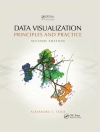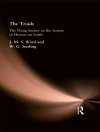Winner of the 2010 Royal Society Prize for science books
Powerful new research methods are providing fresh and vivid insights into the makeup of life. Comparing gene sequences, examining the atomic structure of proteins and looking into the geochemistry of rocks have all helped to explain creation and evolution in more detail than ever before. Nick Lane uses the full extent of this new knowledge to describe the ten greatest inventions of life, based on their historical impact, role in living organisms today and relevance to current controversies. DNA, sex, sight and consciousnesses are just four examples.
Lane also explains how these findings have come about, and the extent to which they can be relied upon. The result is a gripping and lucid account of the ingenuity of nature, and a book which is essential reading for anyone who has ever questioned the science behind the glories of everyday life.
เกี่ยวกับผู้แต่ง
Nick Lane is a biochemist in the Department of Genetics, Evolution and Environment at University College London. ‘Like his forebears in that same department – Steve Jones, JBS Haldane – he’s that rare species, a scientist who can illuminate the bewildering complexities of biology with clear, luminous words’ (Observer). His research focuses on the role of bioenergetics in the origin of life and the evolution of cells. Nick was awarded the 2015 Biochemical Society Award for his outstanding contribution to the molecular life sciences. He has published four critically acclaimed books, which have been translated into 20 languages. Life Ascending won the 2010 Royal Society Prize for Science Books. The Independent described him as ‘one of the most exciting science writers of our time.’












